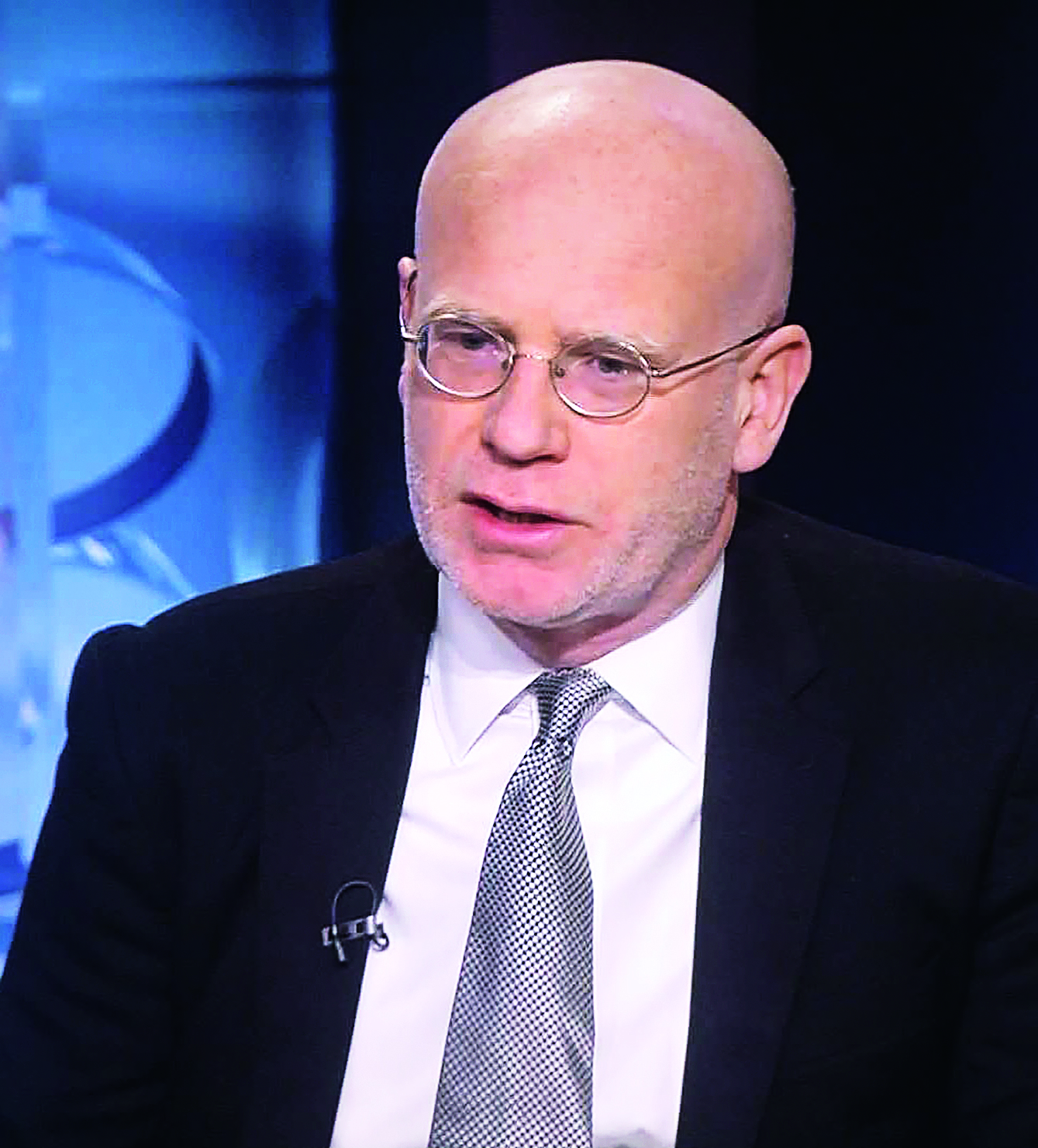
“What we have seen in recent days proves that Switzerland’s financial center has ceased to be its strength and has become a problem.” The statement belongs to Cedric Wermuth, one of the presidents of the Social Democratic Party of Switzerland, and is not the only one that talks about the reality behind collapse of Credit Suisse. In recent days, Swiss politicians and journalists have described a decline banking sector country that has become synonymous with banks. This is because Switzerland’s second largest bank Credit Suisse, which collapsed a few days ago under the weight of its sins and was bought by the equally sinful and first largest Swiss bank UBS, is perhaps more intertwined with prestige than any other. countries. It is a bank founded in 1856 by Alfred Esser, the founder of modern Switzerland, when he wanted to finance its transformation from a relatively poor and underdeveloped country of backward peasants to one of the most advanced economies in the world.
Swiss politicians and journalists, with their statements, reflect the decline of the country’s banking sector, which has become synonymous with banks.
The high-profile takeover appears to have eliminated, at least for the time being, the risk of another global financial crisis, which could be caused by the spread of Credit Suisse’s problems to other banks. Because, unlike the regional American banks that collapsed in the same days, Credit Suisse was a systemic bank and could destroy part of the European or perhaps the global financial system. However, his acquisition shed more light than ever on his sins and reminded the international public of many of the things that had tarnished him, causing him to lose the trust of his clients and with it their dizzying deposits. These included the sentencing of its executive to five years in prison in 2018 for forging the signatures of bank customers to make risky bets with their money without their permission and ultimately causing losses of at least $150 million, as well as the resignation of then-CEO Tinjan Thiam , two years later, after the unimaginable “spying” scandal, how the international media preferred to describe how the bank’s senior management ordered private investigators to keep an eye on another senior executive.
But also the verdict on the bank in June 2022 for the fact that in the period from 2004 to 2008 it allowed the laundering of proceeds from illegal activities and specifically the money of a gang of Bulgarians involved in the cocaine trade. As well as the leaked accounts of 30,000 of her clients around the world, including a woman trafficker in the Philippines, a Hong Kong stock exchange executive who served time in prison for bribery, a moral mastermind billionaire behind the murder of a popular Lebanese man. a singer and executives of the Venezuelan state oil company that captured him, as well as corrupt politicians from Egypt to Ukraine.
Birth of a “monster”
Those who see the collapse of Credit Suisse and its takeover by UBS as some kind of retribution should remember that Switzerland’s second-largest bank was not the only problem child of its banking sector. Not too long ago, Switzerland’s problem was not Credit Suisse, but UBS.
Switzerland’s largest bank found itself in the midst of the 2008 global financial crisis, seeking to enter the US market with risky and toxic investments. The Swiss central bank then bailed him out with $54 billion in guarantees to cover bad debts.
And, of course, UBS decided to bow in and focus mainly on managing the wealth of the world’s richest people. In fact, in short, he took up an exclusively profitable and not risky occupation.
A $1.5 trillion banking giant emerges from a recent deal. Swiss francs, with which it will be possible to blackmail the government of the country.
Unlike, of course, Credit Suisse, which was financially affected not only by its scandals and wrongdoing, but also by its toxic and inappropriate positions. These included his investments in UK financial Greensill and most notably the dark fund Archegos, which collapsed, causing the Swiss bank to lose $5.5 billion in early 2021. The result of what has happened in the past few days and the acquisition of Credit Suisse from UBS is the creation of a banking giant that politicians, journalists and analysts say will be able to blackmail the country’s government as “too big to fail.” The German-language Swiss newspaper Neue Zurcher Zeitung hailed the takeover of Credit Suisse by UBS, noting that “the zombie has died, but the monster has been born.”
The banking giant, formed as a result of the merger of the two banks, will have assets of $1.5 trillion. Swiss francs, that is, twice the GDP of Switzerland, which last year reached 771 billion Swiss francs. And, above all, it will not only have a dominant position in the Swiss financial market, but a kind of monopoly due to its overwhelming size. As Cedric Vermuth, one of the presidents of the Social Democratic Party, commented, referring to the size of UBS, “there is a huge risk that he will use his monopoly to blackmail the government and dictate his preferences to him.”
Singapore opens champagne these days
Perhaps with some exaggeration, Octavio Marenzi, managing director of financial consultancy Opimas, predicted that after the recent revelations about corpses buried in his garden by members of the Swiss banking industry, “the world will now see a Financial Banana Republic.” However, this is not the first time the country has been tarnished by its denial of bank secrecy, as it has been accused of refusing to return Jewish assets to the descendants of Holocaust victims. And that with these fortunes, she expanded her banking industry.
Bond cuts, pressure on banking secrecy and increased competition from other financial poles.
The problem for Switzerland, however, is the prevailing concern that the result of the Credit Suisse crisis will be a loss of confidence in the country as a financial center renowned for its stability. Partly because the AT1 bonds were “cut off” as a result of the arrest of Credit Suisse creditors. Swiss banks manage total assets of 2.6 trillion. dollars, according to a recent study by Deloitte. Thus, Switzerland is the world’s largest financial center, overshadowing the US and the UK.
However, it faces increasing competition from other financial centers such as Luxembourg and especially Singapore, which has intensified significantly in recent years. In fact, speaking to Reuters, Arturo Brice, professor of finance at the IMD International Institute in Lausanne, stressed that “Singapore bank executives will be opening champagne these days.” For Switzerland, the loss of the prestige of the financial center is an existential threat. Its very economic model is based on managing and insuring the wealth of the richest people in the world. After the haircut of AT1 bonds, investors may reconsider their decision and give preference to other financial centers.
After all, since the global financial crisis, Switzerland has been under constant pressure to soften the blame even for the notorious bank secrecy. The reason is a policy that has been in place for over 80 years and has effectively made it a criminal offense to disclose information about your bank customers and their accounts. And now it is under even more pressure to abandon another longstanding policy of so-called “neutrality” and side with the West against Russia over the war in Ukraine. All this may portend difficult days for its shores. And Switzerland is its banks. Okay, and chocolates and watches. But above all its banks.

Octavio Marenzi
“Its reputation as a country with prudent financial institution management and strong oversight and regulatory frameworks, but even its reputation for being weak in terms of investment, has turned to dust.” This was announced by the managing director of the consulting company Opimas LLC Octavio Marenzi.
$17 billion will be the cost of the written-off bonds AT1.

C. Keller-Sutter
Much like the general impression of Credit Suisse, the Swiss finance minister said the government “regrets that the bank, which has been a model financial institution in Switzerland, has managed to achieve this situation.”
107.9 billion dollars of liquidity offered by UBS Bank of Switzerland.

Axel Lyman
For the chairman of Credit Suisse, the day of his acquisition by UBS was “a historic, sad and challenging day for the bank, Switzerland and international financial markets.”
Source: Kathimerini
Lori Barajas is an accomplished journalist, known for her insightful and thought-provoking writing on economy. She currently works as a writer at 247 news reel. With a passion for understanding the economy, Lori’s writing delves deep into the financial issues that matter most, providing readers with a unique perspective on current events.